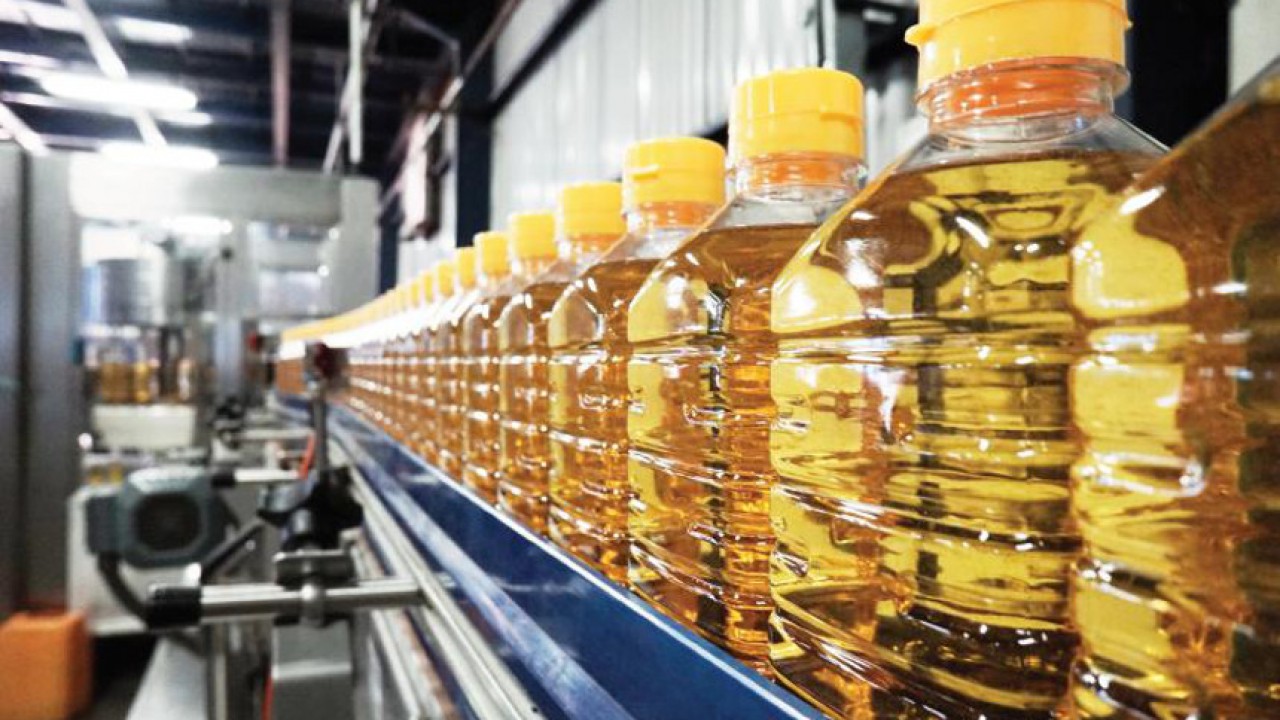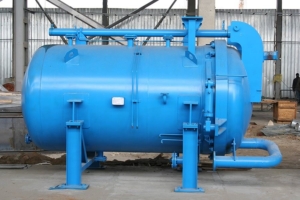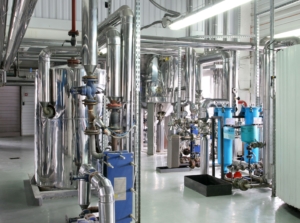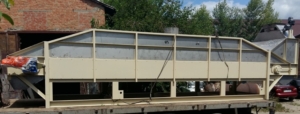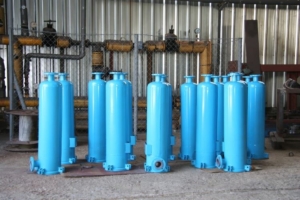Equipment of vegetable oil filtration: purpose and features
- Types of equipment for vegetable oil filtration
- Materials used in filtration systems
- Different materials are used in oil filters to remove impurities and contaminants.
- Process automation and control systems
- Equipment efficiency and capacity
- Selection and preparation of equipment
- Consideration of production volume and capacity
- Selection of the optimal type and model of filtration equipment
- Preparation and setting of the the filtration system
- Service and maintenance of equipment
Filtration technology is an effective solution for removing mechanical impurities from oil. The equipment can be used for different types of product – crude, hydrated, refined oil. The technology is controlled by automation and does not require constant management. TAN offers oil purification lines of various capacities.
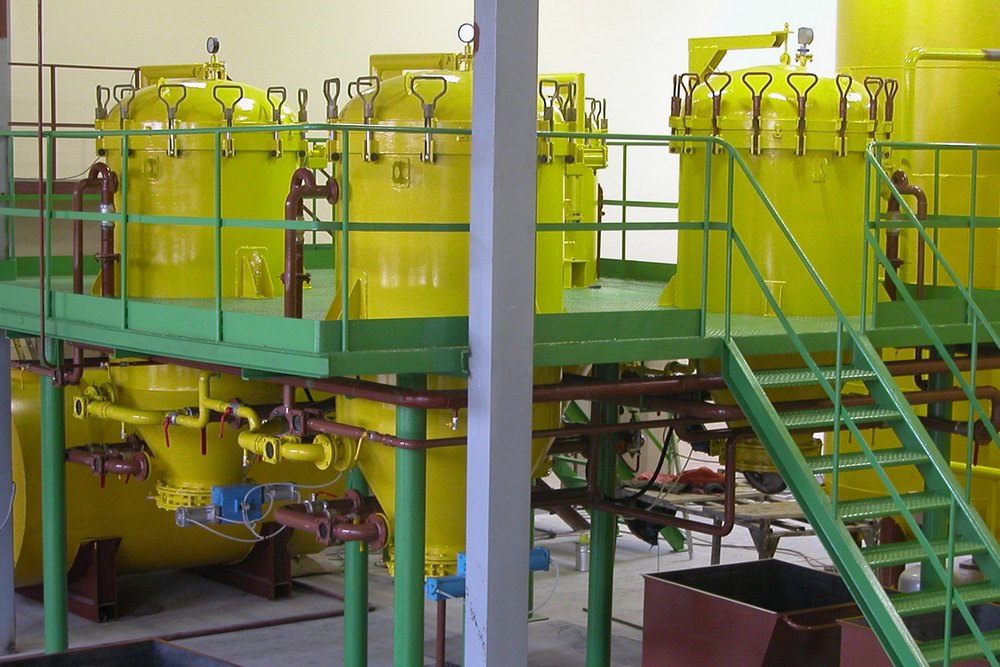
Types of equipment for vegetable oil filtration
There are different filtration lines that perform different types of cleaning:
- Fine filtration line is used to remove small impurities from the refined oil. It consists of police filters.
- Coarse filtration line is necessary to remove larger particles that appear in the oil during the pressing process (seed kernels). The line includes oil sludge catchers and plate filters.
- Deep filtration line is used to remove various impurities and contaminants. The line combines fine and coarse filtration.
One or more purification lines can be used in the production process, depending on the quality requirements of the finished product.
Materials used in filtration systems
Different materials are used in oil filters to remove impurities and contaminants.
- Mesh filters are the most popular and modern option for filtering vegetable oils. They are most commonly used to remove non-oily mechanical impurities. They are usually made of stainless steel or other metals and have plates with 5 layers of filter mesh, onto which the filter layer is washed, through which the oil subsequently passes, leaving contaminants on it.
- Cellulose filters for filtering vegetable oils. They are made of specially processed cellulose and are not the most popular option today
- Polypropylene filters have good chemical resistance and are used to remove solid particles from the oil and, like cellulose filters, are not the most popular option today
- Some filters use synthetic fabric materials such as polyester or nylon. These are so-called “belting” or “fabric” filters. This is an outdated technology that is rapidly losing its popularity and becoming a thing of the past.
Filter manufacturers can use a combination of different materials to achieve optimal performance.
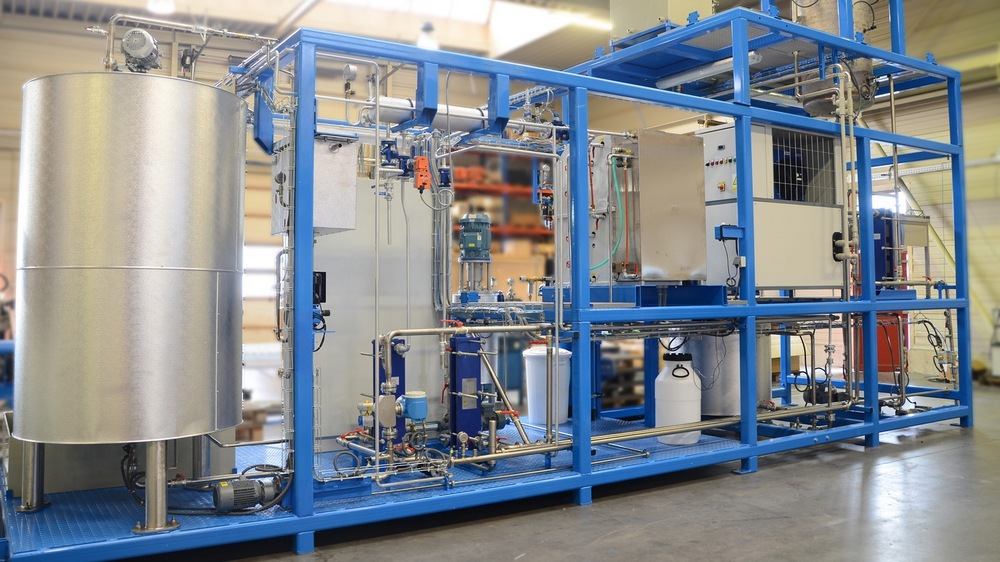
Process automation and control systems
There are various automation and control systems that help ensure the efficiency of the process.
- Pressure sensors are used to monitor the pressure of the filtration system.
- Flow sensors are used to monitor the oil flow rate. They help to detect problems with the filter or clogging of the system.
- Some oil filtration systems are equipped with automatic cleaning systems. These help maintain optimum filtration efficiency without the need for manual cleaning or filter changes.
- Filtration automation systems can include controllers and management systems that monitor various parameters of the filtration process, such as pressure, temperature, flow, etc.
If a problem is detected or the set limits are exceeded, the automation systems activate alerts and an alarm system. This allows operators to instantly respond to problems.
Equipment efficiency and capacity
Vegetable oil filtration lines differ in capacity, with the lowest capacity of 200 liters per hour.
The capacity of the line is selected depending on the capacity of other production lines.
Selection and preparation of equipment
The selection and preparation of oil filtration equipment are important steps to ensure efficient and reliable filtration.
Consideration of production volume and capacity
First, define the requirements for the vegetable oil filtration process. Set parameters such as throughput, volume of oil to be processed. Make sure that the selected equipment is of sufficient size and capacity, take into account the volume and flow rate of the oil.
Selection of the optimal type and model of filtration equipment
Some common types of oil filters include VNP and HNP filters, and police filters. When choosing a filter pay attention to the materials used in its construction. Make sure they will not chemically react with the oil.
Preparation and setting of the the filtration system
Before using oil filtration equipment, it is recommended to conduct preparation works. This may include cleaning the equipment from possible contaminants, checking the filter for proper operation and leakproofness.
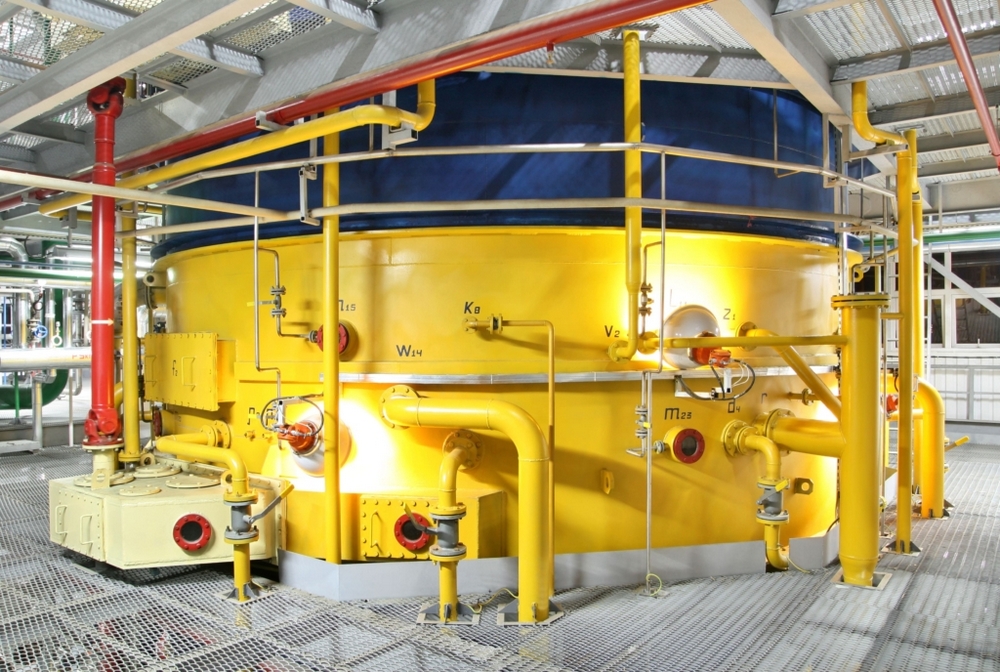
Service and maintenance of equipment
Maintaining filters is an important part of keeping them running efficiently. Filter elements have a limited service life, so regular replacement is essential.
Depending on the type of filter and operating conditions, cleaning and rinsing may be necessary. This will help remove any accumulated contaminants and restore the filter capacity.
Regularly check the pressure and flow through the filter using appropriate sensors or pressure gauges. Deviations from normal values may indicate contamination of the filter.
It is important to note the filter maintenance and service works, including dates of element replacement, inspections, and repairs. This will help you to track the condition of the filters and schedule inspections.
The correct selection of equipment for vegetable oil filtration is extremely important to ensure product quality. The number and capacity of filtration lines is selected individually. The specialists of TAN LLC will help you choose filters for any oilseed enterprise.



